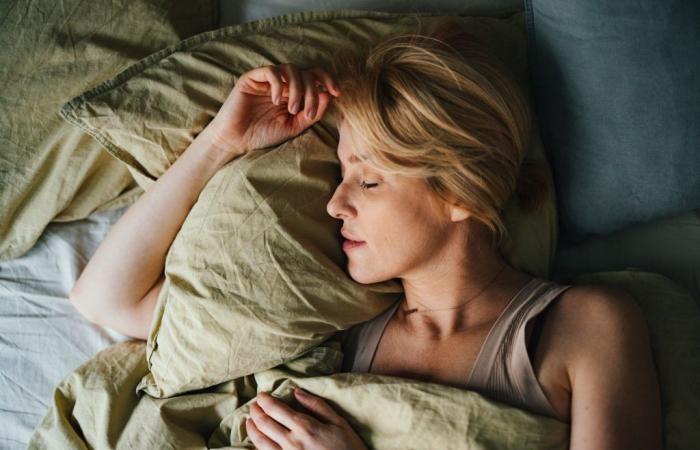Published on June 21, 2024 at 4:29 p.m.
©iStock
We know that lack of sleep can have consequences on our health. But our mental health is also at stake according to a study.
It’s not easy to go to bed before 1 a.m. for some people, for whom it requires considerable effort. However, a good sleep balance is essential to avoid stress, anxiety and symptoms of depression. This is what a new study published in the journal “Psychology Research” says.
Read also >> 10 simple rules that will revolutionize your sleep
A study to qualify
Researchers looked at the sleep of 73,888 Britons. They compared their chronotype, that is to say the fact that they go to bed rather late, or early. They formed three groups: early sleepers (9,065), night owls (6,844) and those in the middle (47,979). But Dr. Indira Gurubhagavatula, a sleep specialist at the University of Pennsylvania, adds nuance in an article in the American edition of “HuffPost”. This sample is composed only of white and middle-aged or elderly people, which may skew the results. Especially since their preference for a late bedtime was determined using a simple questionnaire, which was not detailed enough according to her. To determine a person’s sleep habits, it is necessary to ask them a much more comprehensive set of questions. However, according to her, the results of this study remain telling: they show that whatever the case, going to bed late affects our mental health. She therefore recommends expanding the panel of volunteers and conducting other, more in-depth studies to validate this hypothesis.
The disordered brain
The results show that night owls are 20 to 40% vulnerable to mental health disorders. According to Professor Matthew Lehrer, also interviewed by the American media, the body needs temporal markers to know whether it is day or night. And adapt accordingly. “It is important that our body receives strong signals that it is daytime, for example from the morning rays of the sun. If you don’t receive these signals or they are conflicting, it can lead to biological problems, which could also affect your brain,” he says. The body therefore integrates diurnal or nocturnal mechanisms. Practicing daytime activities at night is possible, but the brain struggles to fight sleep. Mechanisms of inhibition, impulsivity, anxiety are then triggered, etc. “Greater nocturnal activity is associated with more impulsive and maladaptive behavior. There are certain mechanisms in the brain related to behavior, impulsivity and inhibition… when you are awake longer and later they tend to decrease and so this could also be associated with poor mental health .”






